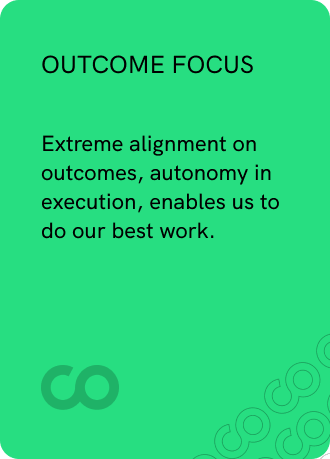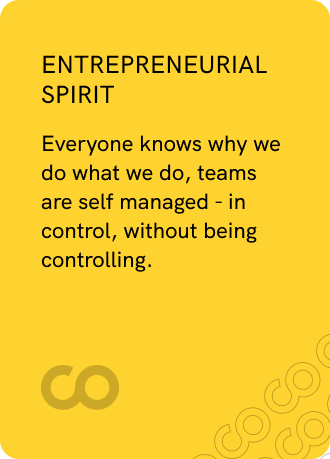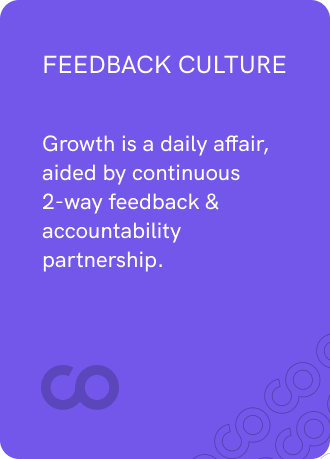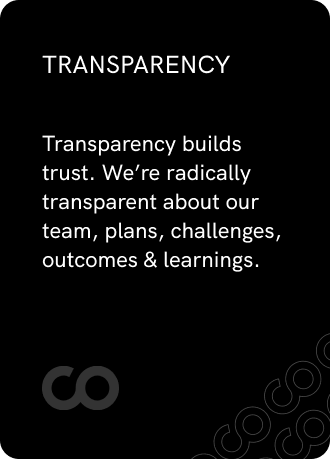Node js development services
Node js development service | Node.js development services
Fast, Scalable, Secure Node.js App Development

Facing Problems With Every Node.js Deployment?
As your app grows, what once worked well can quickly start to show cracks. Slow response times, memory leaks, and unpredictable failures can frustrate users, damage the experience, and lead to revenue drops. Issues with async operations can make your app unstable, and weak deployment strategies may lead to downtime when traffic spikes.
At Codewave, we specialize in building secure, scalable Node.js apps that prevent these problems. We optimize async processing with async/await to avoid callback hell, improve database queries, and use connection pooling for better performance. With PM2 for process management, we ensure your app can handle more traffic without crashing.
Our CI/CD pipelines automate testing and deployment, making updates secure and smooth without disruptions. Whether you’re using AWS, Docker, or on-prem infrastructure, we integrate easily with your existing setup to ensure your app performs well, scales effectively, and avoids downtime.

See the results:
68%
Increase in Developer Productivity
57%
Lower development costs
50–60%
Faster load times
Download The Master Guide For Building Delightful, Sticky Apps In 2025.
Build your app like a PRO. Nail everything from that first lightbulb moment to the first million.
Scale Up Without The Struggle
When traffic surges, apps often slow down or crash. We ensure 99.9% uptime by optimizing performance, enhancing response times, and quickly resolving issues, so your Node.js application stays fast and reliable, even under peak load.
Choosing the right tech stack can make or break an application’s success. We guide businesses in making strategic Node.js decisions—from selecting the best frameworks (Express.js, NestJS) to defining an architecture that supports future growth, whether monolithic, microservices, or serverless.
Our consulting starts with a deep dive into business goals and existing workflows. We assess scalability needs, recommend the right database (MongoDB vs. PostgreSQL), and design API strategies that align with long-term performance requirements. We also create a roadmap for optimizing security, DevOps, and cloud integration.
For example, a fintech firm struggling with slow transactions and wants to revisit its backend strategy. We help restructure APIs, implement real-time processing, and set up a scalable architecture—ensuring instant verifications, better security, and a seamless customer experience.
Your web applications need speed, scalability and security—Node.js delivers all three. We build custom solutions with non-blocking I/O, ensure fast data exchange even under heavy traffic, and integrate RESTful APIs for optimized backend communication.
Server-side rendering (SSR) speeds up initial load times by generating HTML on the server, improving SEO and performance. WebSockets keep connections open for real-time updates, making live chat, notifications, and dashboards instantly responsive. We use Docker to create lightweight, self-contained environments that include the app, libraries, and dependencies. This ensures the application runs the same way on a developer’s laptop, a test server, and in production—eliminating compatibility issues.
For example, an e-commerce platform implements real-time inventory tracking. When stock levels change, updates reflect instantly, preventing overselling and improving customer trust in order availability.
We build high-performance RESTful APIs with Node.js that can handle a high volume of concurrent requests. Node.js’s asynchronous event loop ensures that data exchange remains fast and non-blocking, even during peak traffic periods.
We implement JWT authentication and OAuth 2.0 to enhance security, safeguarding sensitive data by securing API endpoints. Rate limiting ensures controlled access, while Redis caching optimizes performance by reducing database query load. We also focus on pagination and indexed queries to keep data retrieval efficient as your application scales.
Example: An e-commerce platform uses our Node.js APIs for seamless order processing. Product listings update dynamically, stock levels adjust in real-time, and users receive immediate order confirmations, enhancing user satisfaction and reducing cart abandonment.
Your real-time applications stay responsive even under heavy user activity. We specialize in building Node.js-based applications that support instant interactions without lag. Our solutions eliminate delays, improve data synchronization, and ensure smooth performance for live chat platforms, financial systems, and collaborative tools.
We design event-driven architectures that enable instant data updates, ensuring users receive real-time notifications, live status changes, and seamless interactions. Our approach optimizes backend processes, preventing system slowdowns as traffic spikes. Load management strategies keep applications stable and responsive, delivering a smooth user experience.
For example, a ride-booking platform connects drivers and passengers with instant trip updates. Live location tracking provides accurate ETAs, automated request handling prevents booking conflicts, and real-time ride confirmations ensure seamless coordination. The system processes thousands of requests per second without lag, allowing users to book, modify, and track rides effortlessly.
We help businesses build scalable, fast, and resilient applications by transitioning from monolithic systems to Node.js microservices. This approach allows each service—like authentication, payments, or notifications—to scale independently and recover quickly from failures, ensuring minimal disruption. API Gateways are implemented to manage traffic, authenticate users, and route requests to the appropriate service. This ensures seamless communication between services while preventing backend overload.
We containerize each microservice using Docker for consistent execution across all environments. This guarantees that each service runs identically on a developer’s machine, staging, and production environments, eliminating environment-specific issues. The publish/subscribe patterns allow services to communicate asynchronously, triggering actions like invoice generation after a payment is processed. This decouples services and prevents performance bottlenecks.
Example: In an e-commerce app, we implement microservices for order management, payment processing, and inventory tracking. This approach prevents database conflicts, allows for independent updates, and ensures zero downtime.
We migrate your legacy system to Node.js without disrupting operations, making it faster and easier to maintain. First, we analyze your existing setup, pinpoint outdated dependencies, and plan how to break down monolithic code into modular components.
We use Docker to package applications with dependencies, ensuring uniform execution across development, testing, and production without environment-specific issues. We rebuild APIs using Express.js or NestJS, enabling non-blocking I/O for faster request handling and better scalability. We migrate databases using tools like Prisma and TypeORM, ensuring seamless data transfer, schema optimization, and minimal downtime, whether moving from SQL to NoSQL or refining indexing for faster queries.
For example, a SaaS company migrates to Node.js, restructuring APIs, optimizing background tasks, and streamlining database queries. This ensures faster response times, higher scalability, and reliable performance under growing user traffic.
We integrate your Node.js application with cloud platforms like AWS, Azure, and GCP, ensuring scalability and cost efficiency. Cloud adoption removes hardware limitations, allowing applications to handle high traffic without slowdowns or downtime.
We configure cloud databases like DynamoDB for real-time data retrieval and Firestore for syncing across multiple devices, ensuring high availability. API Gateway secures API endpoints with authentication and rate limiting, preventing unauthorized access and abuse. Load balancers distribute traffic across multiple instances, preventing server overload. Serverless computing triggers backend functions only when needed, cutting infrastructure costs while maintaining performance.
For example, an e-commerce company migrates its product catalog and checkout system to the cloud. The platform handles peak sales traffic without lag, transactions process instantly, and automated scaling ensures stable performance as user demand fluctuates.
Your Node.js app stays fast, secure, and stable with continuous monitoring, proactive fixes, and performance tuning. We use New Relic and Datadog APM to track response times, memory usage, and CPU load, fixing slow queries and bottlenecks before they affect users.
We optimize database performance by indexing queries, restructuring joins, and caching with Redis, cutting down response times. Automated dependency updates patch security vulnerabilities without breaking functionality. Load testing with JMeter and k6 simulates peak traffic, ensuring your app scales without downtime.
For example, an e-commerce platform experiences slow checkouts and occasional crashes during sales. We analyze server logs, detect high-latency API calls, and optimize query execution, reducing checkout times. Dependency updates patch security flaws, and load testing ensures stability even under heavy traffic spikes.
Users Hate Lag—Node.js Delivers Real-Time Performance.
We reduce Mean Time to Recovery (MTTR) to under 1 hour, minimizing disruption and ensuring your Node.js apps remain operational and responsive at all times.
We bring computing closer to the data source, reducing latency and improving real-time processing. Cloudflare Workers handle requests at the edge, cutting server response times. Localized processing offloads workloads from central servers, ensuring faster, more efficient app performance.
For instance, a video streaming platform caches content at the edge. Users experience buffer-free playback, even during high traffic, as requests are processed closer to their location.
You can stream and process data instantly for high-speed decision-making. Apache Kafka pipelines handle millions of real-time events, preventing data loss. WebSockets enable bi-directional communication, ensuring dashboards update the moment new data arrives. Node.js Stream API processes incoming data in chunks, reducing memory usage and boosting efficiency.
For instance, a logistics company tracks fleet movement in real time. Dispatchers see live vehicle locations, delivery statuses, and traffic updates, making route adjustments on the go.
A well-built API gateway secures and streamlines API traffic management. We use NGINX reverse proxy to routes requests efficiently, reducing backend load. JWT authentication ensures secure access control, preventing unauthorized API usage. Rate limiting mechanisms block excessive requests, safeguarding against DDoS attacks and ensuring stable performance.
For instance, a SaaS platform centralizes API authentication and request routing. Users access services securely, while backend servers handle only validated requests, improving response times and reducing security risks.
We optimize your infrastructure with auto-scaling serverless applications. AWS Lambda executes functions on demand, adjusting dynamically to traffic surges. DynamoDB’s on-demand mode ensures database efficiency, cutting costs without manual scaling. Event-driven triggers connect cloud services seamlessly, maintaining high availability.
For instance, an online ticketing system handles sudden traffic spikes during event sales. The backend scales instantly, processing thousands of transactions without lag or server crashes.
We streamline deployments with automated CI/CD workflows, reducing errors and speeding up releases. GitHub Actions automates testing and integration, ensuring stable updates. Jenkins pipelines handle smooth deployments, while Docker containers keep environments consistent across development and production.
For instance, a fintech app automates feature rollouts with CI/CD. Developers push updates, triggering automated builds, tests, and deployments—ensuring secure, error-free releases without downtime.
Your Node.js applications run effortlessly on web, mobile, and desktop with a shared codebase. Electron powers desktop apps using the same backend. React Native extends Node.js services to mobile, ensuring smooth interactions. Progressive Web Apps (PWAs) deliver native-like performance in browsers, cutting development costs.
For instance, a healthcare provider builds a single Node.js-based system for appointment booking. Patients access it via web, mobile, and desktop—ensuring a unified experience without managing separate codebases.
We safeguard applications with advanced security measures, preventing cyber threats and data breaches. JWT authentication secures APIs by validating user sessions. Node.js bcrypt encrypts passwords, while OWASP ZAP scans for vulnerabilities, identifying risks before they escalate.
For instance, a banking app integrates multi-factor authentication (MFA). Users verify logins via OTPs, ensuring secure access while blocking unauthorized attempts—keeping transactions safe.
Your enterprise applications scale effortlessly with modular and high-performance Node.js architecture. NestJS structures apps with maintainable layers. RabbitMQ handles asynchronous messaging for real-time data flow. GraphQL optimizes API queries, reducing latency in high-traffic systems.
For instance, a logistics company automates supply chain tracking with a Node.js platform. Real-time inventory updates sync across global warehouses, ensuring seamless coordination without manual intervention.
Node.js done right. Scalable, secure, and fast - just how you need it.
From Concept to Code, Perfected.
We turn ideas into high-performance mobile apps, web applications. Our Node.js process blends creativity with precision, from the first concept to flawless code. We’re focused on speed, scalability, and delivering results that exceed expectations.
We kick off with discovery workshops to define the project scope, end goals, technology needs, expected load, and system interactions. By focusing on what best serves both users and the business, we carefully select the right technology stack. For scalable APIs, we choose NestJS, while Express.js is perfect for lightweight applications. When it comes to databases, we opt for MongoDB when flexibility is key and PostgreSQL for structured transactions. We make sure the tech stack is the best fit before writing a single line of code.
Next, we plan how the backend components will work together to achieve your business goals. Using Domain-Driven Design (DDD), we break down business logic into clear, independent modules for better clarity and scalability. We use Swagger to document APIs, making third-party integrations simpler and ensuring everything is standardized. This approach keeps development organized and ensures your system is future-proof.
We structure the code with a layered approach, keeping business logic separate from database interactions for better clarity and maintainability. TypeScript helps prevent bugs by enforcing strict typing from the beginning. ESLint ensures that every developer adheres to best practices, keeping the code clean, readable, and maintainable. Each module follows SOLID principles, making future changes easier and more efficient.
We optimize the database to handle heavy loads efficiently without compromising speed. Knex.js manages database migrations smoothly, ensuring zero downtime. To speed up data retrieval, we use Redis caching to store frequently accessed data in memory, reducing database queries and significantly improving response times.
Releasing updates should be seamless and risk-free. We use Docker to maintain consistency across development, testing, and production environments. With rolling updates, we can deploy new features without downtime, ensuring your app runs smoothly and continuously evolves without disruption.
After going live, we monitor performance and security around the clock. Prometheus tracks server health and API response times, allowing us to address issues before they impact users. With regular updates and security patches, we ensure your app remains reliable, secure, and prepared for future growth.
Full-Spectrum Node.js Solutions: The Tech Stack That Delivers.
| Runtime & Package Management |
|
| Frameworks & Libraries |
|
| Database Management |
|
| ORMs & Query Builders |
|
| Authentication & Security |
|
| Testing & Debugging |
|
| API Development |
|
| Build & Automation |
|
| Logging & Monitoring |
|
| DevOps & Deployment |
|
Scalable Apps, Any Industry.
We’ve served over 15 industries and 400+ businesses, delivering custom Node.js solutions.
| Healthcare | We build secure web and mobile apps that process real-time patient data from wearables, medical devices, and EHR systems. Our Node.js back-end ensures seamless integration while maintaining HL7/FHIR compliance for secure data exchanges between healthcare providers and telehealth platforms. Example: A telemedicine app syncs patient vitals from smartwatches, displaying real-time ECG data to doctors for instant prescription adjustments and improved patient care. |
| Transportation | Real-time vehicle tracking, ride-matching, and automated dispatching run on GPS data and API-driven route optimization. The Node.js back-end processes live traffic inputs to calculate precise ETAs. Example: A ride-sharing app processes trip requests in milliseconds, matches riders with the nearest drivers, and updates arrival times based on live traffic data. |
| Energy | We build web and mobile apps that process real-time IoT sensor data for smart grid monitoring and predictive maintenance. Our Node.js back-end handles event-driven data streams, analyzes voltage fluctuations, and triggers automated maintenance requests to prevent failures. Example: A power company detects transformer issues instantly by analyzing real-time voltage data and automatically dispatches repair teams before outages occur. |
| Retail | High-volume eCommerce transactions, real-time inventory updates, and secure order processing run on a microservices-driven architecture. Third-party payment gateways integrate seamlessly, preventing overselling with dynamic stock adjustments. Example: An online store updates product availability in real time, syncing inventory across warehouses and ensuring fast, accurate order fulfillment. |
| Insurance | Automated claim validation detects fraud and speeds up approvals. Structured data inputs cross-check accident claims against vehicle telematics, while OAuth2 authentication secures customer portals. Example: An insurance platform verifies accident claims in minutes by analyzing real-time vehicle telematics and flagging inconsistencies. |
| Agriculture | We build web and mobile apps that process real-time weather, soil, and crop data to optimize farm management. Our systems integrate with IoT sensors, analyze field conditions, and enable data-driven decision-making for higher yields. Example: A precision farming app monitors soil moisture in real time, alerting farmers to drought risks and triggering automated irrigation adjustments. |
| Education | Virtual learning platforms integrate AI-driven assessments, real-time student engagement tools, and automated attendance tracking. WebRTC-powered live classrooms provide interactive Q&A sessions. Example: An online education app generates real-time quizzes tailored to each student’s progress, reinforcing concepts and improving learning outcomes. |
What to expect
What to expect working with us.







We transform companies!
Codewave is an award-winning company that transforms businesses by generating ideas, building products, and accelerating growth.
Frequently asked questions
Node.js development services include building scalable web apps, APIs, and real-time solutions. With an event-driven, non-blocking architecture, Node.js enables fast execution, making it ideal for applications requiring high concurrency, low latency, and seamless data streaming.
Node.js offers fast processing, handles multiple requests asynchronously, and is ideal for real-time applications like chat apps, IoT, and fintech solutions. Its JavaScript runtime allows full-stack development, reducing development time and ensuring high scalability.
Node.js powers real-time applications, streaming platforms, microservices, and serverless applications. It’s widely used in eCommerce, SaaS platforms, fintech, and enterprise solutions requiring high-speed processing, low response times, and efficient resource utilization.
Node.js applications remain secure with best practices like input validation, JWT authentication, rate limiting, and encryption. Security libraries like Helmet.js and bcrypt help prevent vulnerabilities, ensuring data protection and compliance with industry security standards.
Node.js is faster than PHP and Ruby due to its non-blocking nature. It efficiently handles real-time data, event-driven workflows, and microservices, making it a top choice for high-performance applications requiring low latency and high concurrency.
Codewave builds scalable, high-performance applications with optimized APIs, microservices, and real-time data processing. Our team ensures efficient database queries, server-side performance tuning, and cloud-native deployments for seamless, secure, and scalable solutions.
We provide Node.js development service for fintech, healthcare, eCommerce, and logistics. Our solutions power secure payment gateways, telemedicine platforms, order management systems, and real-time tracking applications tailored for high-traffic, data-intensive environments.
We use load balancing, horizontal scaling, and containerization with Docker and Kubernetes. Our applications handle traffic surges efficiently by distributing workloads, optimizing caching, and ensuring smooth performance with auto-scaling cloud infrastructure.
Yes, we specialize in RESTful and GraphQL API development with Express.js and NestJS. Our APIs ensure seamless third-party integration, high security, and fast response times while supporting microservices architecture for maximum efficiency.
We focus on speed, security, and efficiency. Our team optimizes database queries, implements caching strategies, and reduces server load using event-driven architecture, ensuring smooth performance for real-time applications with minimal latency.
We implement OAuth2 authentication, input validation, and rate limiting to prevent attacks. Secure coding practices, encryption techniques, and regular security audits ensure compliance with OWASP guidelines, protecting applications from vulnerabilities.
Reach out with your project idea. Our experts assess your requirements, suggest the best architecture, and build a robust, scalable solution with optimized performance, security, and seamless deployment to match your business goals.































































